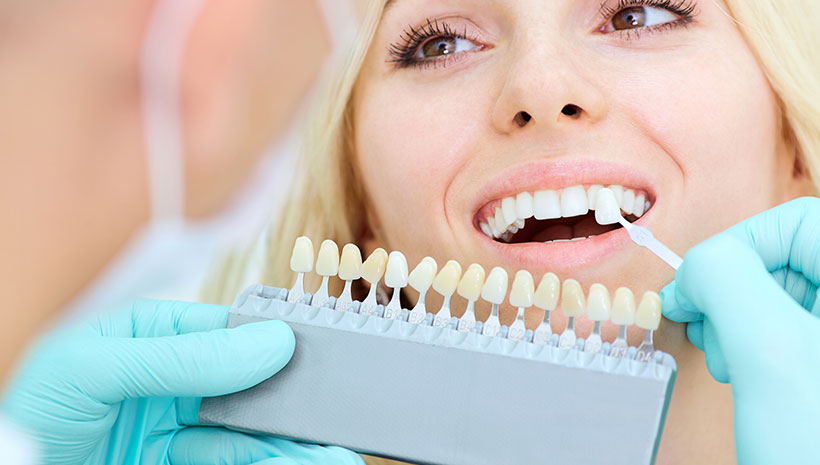Table of Contents
Dental Crowns: A Comprehensive Guide
Dental crowns, also known as dental caps, are dental restorations that are placed over a damaged tooth to protect and restore its function. These restorations can be made from various materials such as porcelain, metal, and resin, and are designed to fit perfectly over a damaged tooth or dental implant. In this article, we’ll take a closer look at dental crowns, how they work, their benefits, and the different types available.
Understanding Dental Crowns
Dental crowns are used to cover a tooth that is weakened, damaged, or decayed. A crown can help to restore the function and aesthetics of a tooth, prevent further damage, and improve your overall oral health. The crown is designed to mimic the shape, size, and color of the natural tooth, ensuring that it blends seamlessly with the rest of your teeth.
Dental crowns are typically recommended in the following situations:
- To protect a tooth that has been weakened by decay or trauma
- To cover a tooth that has undergone root canal treatment
- To restore a tooth that has been severely worn down
- To improve the appearance of a tooth that is misshapen or discolored
- To anchor a dental bridge in place
- To cover a dental implant
Benefits of Dental Crowns
There are several benefits to getting dental crowns. For one, they help to protect and preserve a damaged tooth. A crown can also help to improve the appearance of a tooth that is discolored or misshapen, which can boost your confidence and self-esteem. Additionally, dental crowns can help to restore your ability to eat and speak comfortably, which can improve your overall quality of life.
Types of Dental Crowns
There are several types of dental crowns available, each with its unique benefits and drawbacks. Here’s a closer look at some of the most common types:
- Porcelain Crowns
Porcelain crowns are one of the most popular types of dental crowns. They are designed to mimic the natural look of a tooth, making them an excellent choice for front teeth. Porcelain crowns are also durable and long lasting, making them a good investment.
- Metal Crowns
Metal crowns are often used for back teeth, as they are incredibly durable and can withstand the forces of chewing and biting. They are also a good choice for patients who grind or clench their teeth, as they can withstand the extra pressure.
- Ceramic Crowns
Ceramic crowns are similar to porcelain crowns, but they are not as strong. However, they are a good choice for patients who are allergic to metal.
- Zirconia Crowns
Zirconia crowns are incredibly durable and long-lasting. They are also biocompatible, making them an excellent choice for patients with allergies or sensitivities to metals.
- Resin Crowns
Resin crowns are made from a composite material that is matched to the color of your teeth. They are not as strong as other types of crowns, but they are a good choice for front teeth.
The Process of Getting a Dental Crown
Getting a dental crown typically involves two appointments with your dentist. During the first appointment, your dentist will examine the tooth and prepare it for the crown. This may involve removing any decayed or damaged areas of the tooth, as well as reshaping it to fit the crown.
After the tooth has been prepared, your dentist will take an impression of the tooth, which will be sent to a dental laboratory where the crown will be fabricated. Your dentist will also place a temporary crown over the tooth to protect it until the permanent crown is ready.
During the second appointment, your dentist will remove the temporary crown and place thepermanent crown over the tooth. Your dentist will check the fit and make any necessary adjustments before cementing the crown in place.
Caring for Dental Crowns
Dental crowns can last for many years with proper care. Here are a few tips to help you care for your dental crown:
- Brush and floss regularly to keep the area around the crown clean and free of plaque.
- Avoid chewing on hard objects or foods, as this can damage the crown.
- Visit your dentist regularly for checkups and cleanings.
- If you grind or clench your teeth, talk to your dentist about a mouthguard to protect your crown and your teeth.
Dental Crown Costs
The cost of a dental crown can vary depending on several factors, including the type of crown, the location of the tooth, and the complexity of the procedure. Generally, porcelain and ceramic crowns are more expensive than metal crowns, but they also tend to look more natural.
It’s important to note that dental crowns are typically considered a restorative procedure, which means that they may be partially covered by dental insurance. Be sure to check with your insurance provider to see what portion of the cost will be covered.
In conclusion, dental crowns are an excellent option for restoring damaged or decayed teeth, improving their appearance, and preserving their function. With proper care, a dental crown can last for many years and help to improve your overall oral health. If you’re considering getting a dental crown, talk to your dentist to see if it’s the right choice for you.
